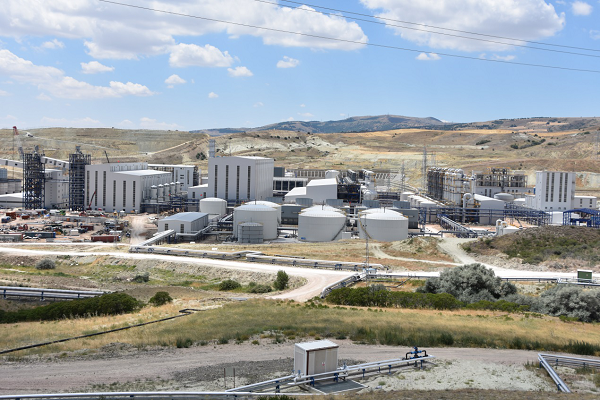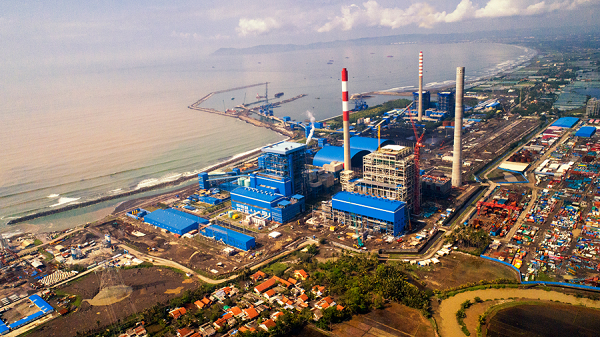CNCEC Signs $610-million Contracts with Russia and Indonesia
The Second Belt and Road Forum for International Cooperation was held in Beijing on April 25.
At the China National Convention Center, China National Chemical Engineering Group Corporation (CNCEC) signed with Russian JSC SHCHEKINOAZOT an EPC contract of approximately $450 million for the fertilizer project and an EPC contract of $160 million for the Indonesian Bontang bottled LNG project, totaling approximately $610 million.
The ammonia-urea production complex project is set to run in Shchekino city, Tula region, Russia, with a contract period of 49 months, 1500t/d ammonia plants, 2000t/d urea plants, large granule plants and supporting utilities.
The project is one of the large-scale key projects in the industrial zone of Tula in Russia, and is of great significance to the promotion of the local economy and employment.
The Indonesian Bontang LNG project is set to run in Bontang city, East Kalimantan, Indonesia, with the contract period of 24 months and a daily LNG delivery volume of 680 MMSCFD.
As a multi-island country, Indonesia is unable to build a large-scale natural gas pipeline network and its population varies considerably from island to island with scattered distribution sites.
Upon the kickoff of the project, tanks filled with LNG will be shipped to the islands by water, which will greatly relieve the pressure on the supply of natural gas such as gas consumption of islanders in northeastern Indonesia and power generation from natural gas, and will greatly further the improvement of people's lives as well as local economic growth.
Countries along the Belt and Road boast excellent natural resources and huge market consumption potential, which have always been the traditional keys for marketing chemical engineering in China.
Relying on rich experience and strong technical strengths, CNCEC has contributed a large number of high-quality engineering services to countries along the route with arrays of key projects, ranging from a nitrogen fertilizer project in North Vietnam to a natural gas chemical complex project in Kazakhstan, and from an underground natural gas storage project in Turkey to the third phase of a coal-fired power plant project in Zhelazar, Indonesia, which have played an important role in the local economy and people's daily lives.
According to the person in charge of CNCEC, it has more than 120 overseas organizations, mainly in Indonesia, Malaysia, Russia, Saudi Arabia, Pakistan, Egypt, Kazakhstan, Bangladesh and Turkey. In order to strengthen market expansion in the Belt and Road key countries, the CNCEC headquarters in Indonesia, the United Arab Emirates, Pakistan, Russia, the Democratic Republic of Congo (DRC) and East Africa set up specialized overseas offices to coordinate the development and operation of regional markets in 2018.
Since 2013, China has signed over $30 billion worth of new contracts in countries along the Belt and Road and helped foreign owners raise more than $20 billion in financing in China.
At the moment, over 200 Belt and Road projects are under construction, over 28,000 Chinese chemical engineers are deployed abroad, over 5,000 expatriate management personnel run by local authorities are employed, and over 100,000 people from countries along the route participate in construction of projects annually.
These projects cover more than 50 countries, including Vietnam, Saudi Arabia, Malaysia, Indonesia, Kazakhstan, Turkey, Russia, Egypt, Sri Lanka, Pakistan, Brunei and Bangladesh, as well as in the chemical, coal chemical, petrochemical, oil refining, power plants, housing, infrastructure, light industry, and environmental protection industries.

The picture shows the Kazan trona project of Turkey's Ciner Group, which is undertaken by China Tianchen Engineering Co., Ltd. (TCC), affiliated to CNCEC. The project involves the most funded trona processing plant in the world with the construction scale of 2.5 million t/y of trona, 200,000 t/y of bicarb, and a total investment of about $1.3 billion. The production began in August 2017 and the resulting high-quality trona, which has been shipped around the world, is widely used in industries such as glass, paper, detergents and food. [Photo/CNCEC)

The picture shows the third phase of the coal-fired power plant project in Zhelazar, Indonesia, the general contract for which was signed by CNCEC on June 5, 2015, with a contract value of approximately $900 million. The project is another fruitful outcome of the Belt and Road Initiative actively implemented by state-owned key enterprises and it was the first time for China to export its 1 million-kilowatt ultra-supercritical units with independent intellectual property rights to an overseas market. [Photo/CNCEC]
(Executive editor: Li Shuling)



